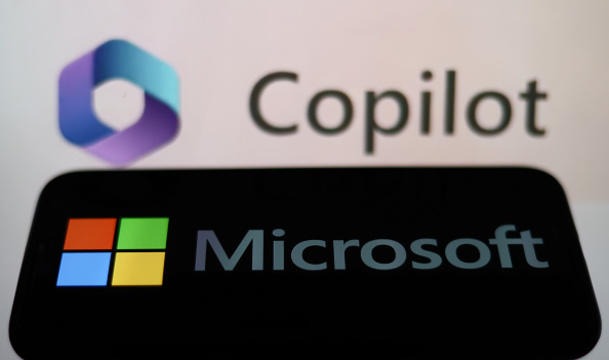When Microsoft unveiled a flashy Super Bowl ad showcasing AI Copilot seamlessly helping people code, compose music and create digital art, they sparked buzz around artificial intelligence’s burgeoning role enhancing human creativity.
But the slick commercial also renewed important questions about AI’s societal implications if such sophisticated tools emerge. Does Copilot foreshadow workforce disruption? Can AI responsibly collaborate without compromising user agency?
This article examines the ad’s significance, both as vision of revolutionary consumer potential and cautionary tale regarding AI development risks if mishandled.
Inside Microsoft’s Super Bowl Commercial
Rather than spotlighting Xbox or Surface devices as in past years, Microsoft broke new ground highlighting AI software capabilities through a fast-paced Copilot advertisement.
It depicts individuals seamlessly leveraging Copilot to generate musical compositions, artwork and even tax preparation documents after simply describing desired outcomes.
The ad suggests AI promises intuitive assistance amplifying human endeavors thanks to increasingly powerful machine learning models.

Bringing AI Collaboration into Everyday Life
Importantly, depictions situate AI collaboration during everyday moments like work breaks or family gatherings rather than solely high-pressure productivity sessions.
This hints at AI’s creeping ubiquity thanks to proliferating apps, web services and device integrations. The same way calculators and spellcheck permeate nearly all digital tasks today, AI looks to offer ambient intelligence in the coming years.
Blurring Lines Around AI/Human Creativity
Additionally, showcasing AI jointly creating music and artwork alongside people foreshadows changing perceptions around output originality in AI-enhanced workflows.
If AI recommendation engines inform significant creative direction, does distinction between human versus non-human creation lose relevance as collaborative hybrid models emerge?
Presenting Copilot: Microsoft’s Code Completion Assistant
But what exactly is Copilot? And does the real product live up to slick super Bowl hype?
Released in preview form in 2021, Copilot integrates within Microsoft Visual Studio Code to offer suggestions helping developers write code more efficiently by finishing snippets, entire functions or whole programs.
Trained on Public Code Repositories
Underlying Copilot is Codex, a massive machine learning model trained by San Francisco based AI startup Anthropic. Codex digested public GitHub repositories spanning decades to statistically learn conventions around writing software.
This foundation allows extrapolating patterns completing opened source Python, JavaScript, TypeScript, Ruby and more when developers describe desired functionality.
Speeding Software Development with Line Completions
From fillingmundane syntax like closing brackets to proposing entirely new functions, Copilot accelerates developer velocity – especially helping early career coders overcome experience gaps.
Prolific recommendations sidestep constantly referencing documents when writing common application logic or styling UI components.

Broader Societal Implications of Mainstream AI Adoption
As paired human/AI collaboration inches towards reality though tools like Copilot, profound impacts loom around economic markets, education and ethics.
Impending Workforce Dislocations
Perhaps an inevitable talking point surfaces around AI automating white-collar jobs previously considered irreplaceable by cold logic.
Certainly Copilot and successors threaten software engineering roles, especially more formulaic positions converting specs into standardized code.
This risks deepening inequality if transitioning displaced workers into new roles proves challenging at scale.
Unintended Consequences of Optimized Systems
Another concern cites AI developers fixation with narrow benchmarks blinding ethical oversight of real world deployment.
Codex fixing syntax easily overlooks shortcuts or ingrained prejudices disadvantageous for end users relative to commercial motives.
Without thoughtful regulation, AI tooling risks inheriting and amplifying existing societal biases.
Reconsidering Dynamics of Human/Machine Collaboration
Some industry thought leaders also warn against forfeiting too much agency to closed AI models owned by private interests.
Allowing black box engines shaping creative works or policy formations empowers the companies owning them versus users or citizens meant to benefit from technological progress.
Preserving human dignity requires ensuring user empowerment within AI collaborations as capabilities advance.
The Verdict on Microsoft’s Super Bowl Commercial
Did Microsoft’s splashy ad hit the mark introducing Copilot as portal into an AI-powered future? Reactions split:
A Bold Vision Resonating with Target Audiences
Younger technologists seem galvanized by the ad’s compelling depictions of programming helpers and digital artistry suites.
As digital natives increasingly expecting ambient computing assistance flowing naturally across devices and activities, Microsoft struck the right aspirational notes previewing their product roadmap.
More Seasoned Observers Urge Patience
Meanwhile industry analysts urge tempering expectations until tangible end user benefits emerge beyond R&D hype cycles.
They rightfully ask to first demonstrate clear workflow boosting use cases before prematurely declaring AI paradigm shifts in broad capabilities.
Proof lies in near term product enhancements versus conceptual what ifs.
The Upshot on Mainstreaming AI Assistance
While pockets experience highly advanced applications daily, years likely remain before AI adoption reaches saturation levels depicted in Microsoft’s commercial.
Gradual enhancements steadily building user comfort still outpace radical breakthroughs fundamentally transforming consumer and business software.
But make no mistake – tools like Copilot foreshadow Industry inevitabilities as computing resources supporting AI research and deployment expand exponentially.
Rather than asking if such capabilities manifest, astute observers now probe what responsible integration looks like maximizing societal benefit while minimizing unintended harms.










Add Comment